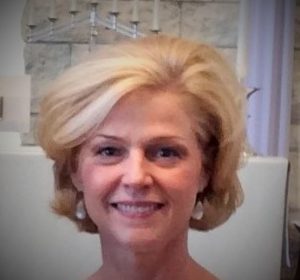A couple of things come to mind as topics worth discussing this month. One is hiring foreign workers, and the other is the Presidential election.
Starting with hiring foreign workers, I was initially grateful that what appeared to be well-educated migrants from Venezuela and Cuba had come to the Permian Basin to find jobs.
There are a few terms used to describe immigrant workers, including “immigrant,” “migrant,” “foreign worker,” “expatriate,” and “guest worker.” AI provided these definitions. An immigrant is a common term in North America that describes people who live in a country other than their birth country. Migrant is a neutral term that can describe anyone who moves here, including refugees. Foreign worker is a term that describes migrant workers who work outside their home country. Expatriate is a term used to describe migrant workers who have been invited or sent to work in another country. A guest worker is a term that describes migrant workers who have been invited or sent to work in another country. Undocumented immigrant is a term used to describe a person who is in a country without authorization. A non-citizen is the term used in the Immigration and Nationality Act.
For this article, I will use the term migrant. These people have entered the United States legally in the past couple of years, are legally able to work, and have been fingerprinted upon entry into the United States.
Many migrants have entered without church or family ties. Many came from countries that were simply bad places to live and, even more complicated, not great places to make a living. Often they live in what we would consider generational poverty in the United States.
Generational poverty is a cycle of poverty that occurs when a family has been in poverty for at least two generations and the condition is passed down to subsequent generations. It is a social justice issue that can affect every aspect of a person’s life, including their physical, social, emotional, and mental well-being.
Recently, I met a migrant from Cuba. She had worked to learn English and was teaching her children the same. A few days later, I met a professional from Venezuela who had been in Midland for about ten years. She told me some recent migrants were not people of high character and morals.
The expression “You cannot judge a book by its cover” comes to mind, meaning you should not judge someone or something based only on what you see on the outside or only on what you perceive without knowing the whole situation. Some people are good, and some are not.
My second topic for discussion is the Presidential election. I remember exactly where I was in 2016 when what many expected did not happen. Clinton did not win, and I was in the Greentree Country Club, sitting at a table of executives from a company that no longer exists, being vetted for a short-term role to help relocate many of their employees, who were to move from Houston to Midland. I had not looked at my phone, but several of them were looking at theirs, and I only remember turning and looking at the TV and realizing Clinton had not won.
Fast forward to 2020, and I can barely remember where I was between COVID-19, the political noise, and the overall isolation the world was living in. Being a mediator has taught me a few things, one being that people still need to talk to each other.
Now, it is 2024, and if you read this article, the election will initially be over. Who knows what will come? I bring this up because, as leaders, you must model and promote civility in the workplace. Navigating political speech in the workplace involves legal issues, and your organization needs to be prepared to handle conflicts. Do you have policies establishing employee behavior? Have you offered employees training in communicating professionally and handling disagreements? I, for one, am worn out with employees complaining about each other and not trying to get along. Your employee handbook is a great place to start. I am still shocked that so many organizations are without them.
I did an employee handbook recently for a very conservative and privately owned company. They do not allow personal clothing or caps at work. Employees are required to wear their uniforms. A uniform requirement is a simple way to avoid visuals that can start an argument.
Also, you might consider offering more opportunities for employees to get to know each other. If you have a cookout around the holidays, have them more often. Look for ways to break down barriers. Ask your employees for suggestions for positive events and acknowledge those employees.
As leaders, you set the tone of your organization. George W. Bush maintained composure in front of those elementary school children after being told about the first plane going into the World Trade Center. I am still amazed at that moment in history. What would have happened if he had forgotten who he was and what his role was for those children and the American people?
George W. is quoted as saying, Civility is not a tactic or sentiment. It is the determined choice of trust over cynicism, of community over chaos.
“Your employees are the heart of your organization.” Dr. Michele Harmon is a Human Resource professional, supporting clients in Texas and New Mexico that range in size from five to more than 3,000 employees. Email: micheleharmon1@gmail.com










